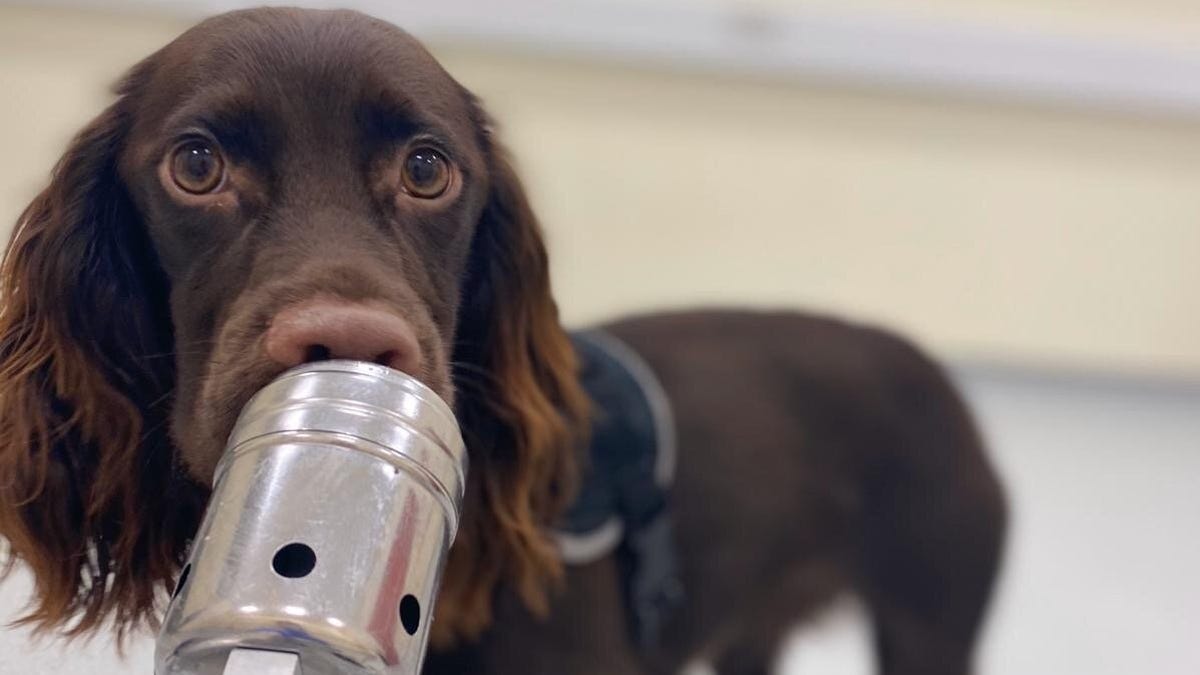Dogs Can Smell the Stress on Us, Scientists Say
New research suggests our anxiousness stinks, and that dogs can pick up on it from our sweat or breath.

A study dog sniffing a person's breath and sweat sample.
You may think you're able to hide your stress, but a new study suggests dogs can sniff it out.
Researchers from Queen's University Belfast carried out experiments using four dogs and 36 people and concluded that canines seem to be able to smell stress in human breath and sweat. Despite the small sample of pups, the results are intriguing, with the scientists noting that their work could have implications for training service and therapy dogs.
"The research highlights that dogs do not need visual or audio cues to pick up on human stress," Clara Wilson, a doctoral student in the school of psychology at Queen's, said in a statement. "It also helps to shed more light on the human-dog relationship and adds to our understanding of how dogs may interpret and interact with human psychological states."
For a new study that appears in the journal Plos One, researchers had human participants attempt to solve a difficult math problem and recorded their heart rate, blood pressure and self-reported stress levels in the process. They then took samples of the subjects' sweat and breath and had trained dogs smell the samples within hours of being collected.
The dogs were cued to differentiate an individual's stress sample from their relaxed sample and were able to do so in 675 out of 720 trials, or with about 94% accuracy.
It's long been suggested dogs are able to detect stress in humans, perhaps through visual cues, but the authors believe their results show our keen-nosed furry friends can also detect a change in compounds produced by the human body when responding to stress.
The study relies on the assumption that the difference dogs are able to sniff out between an individual's breath and sweat samples really are associated with stress, and not some other factor the researchers didn't control for. It would now be good to see these results replicated in other, larger studies.
In addition to the research possibly impacting the training of service dogs, perhaps there could also be potential applications for creating new colognes that double as dog repellents: "Eau de Anxiousness," coming to a department store counter near you this holiday season.

